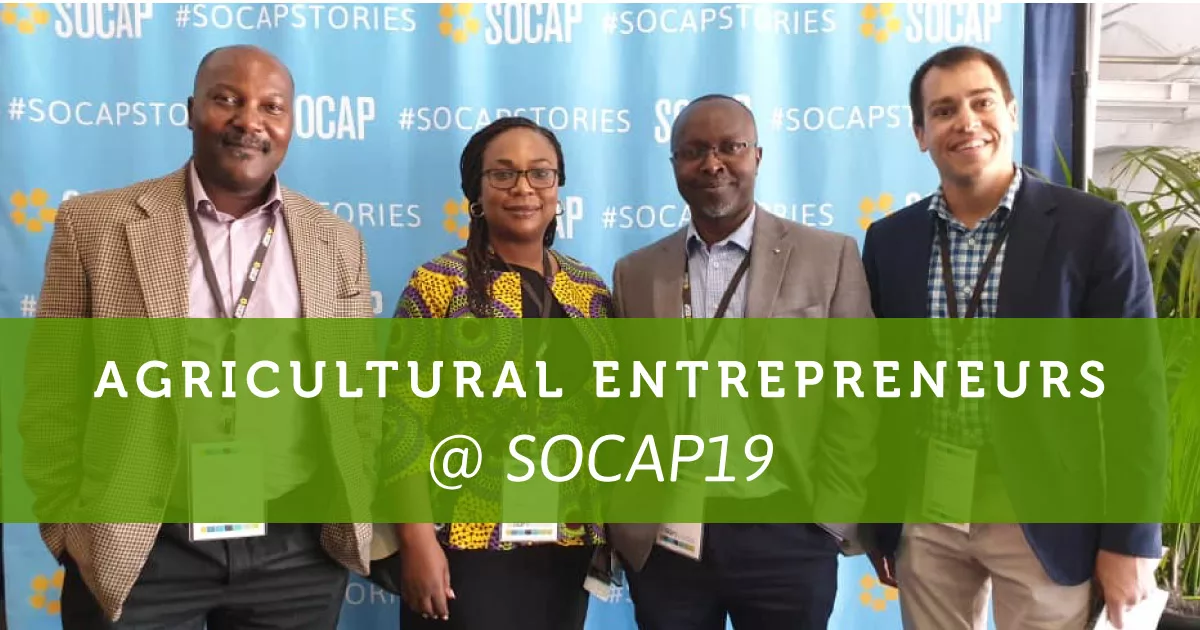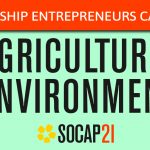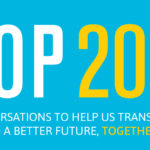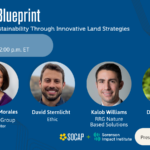A SOCAP Guest Post by Mark Sevier
Frederic Kawalewale of Agro-Input Suppliers Limited and Stephanie Angomwile of Stewards Globe travelled to SOCAP19 from Malawi and Zambia, respectively, to explore the untapped opportunities in impact investment for rural agriculture. They also wanted to demonstrate how small and growing businesses like theirs, with the right partners, can be investor-ready.
With the conference over and Frederic and Stephanie back to leading their companies, Mark Sevier, Acceleration Manager with Feed the Future Partnering for Innovation, caught up with them to hear their key takeaways and how the connections they made stand to benefit their businesses going forward.
Mark Sevier: What do you want investors to know about agriculture in emerging markets?
Frederic Kawalewale: There are many fund structures for investing in agriculture in emerging markets aside from venture capital. For example, I never knew that investors could set up investments where they are paid their principal and interest based on the revenues I generate! This would allow me to free up working capital and operational cash flow, with the investor getting their returns when my business grows. This is the type of fund structure that is appropriate for agriculture in emerging markets given its cyclical nature.
I also would like investors to better understand the nuances around what it means to run a family-owned business. Investors often have Board of Director requirements that carry implications most family-owned businesses are not able to accommodate.
Stephanie Angomwile: I want investors to better understand how difficult it is to manage an agricultural business in an emerging market, particularly a women-owned business. With only one agricultural season, low consumer purchasing power, and a difficult enabling environment, building a sustainable business is a very challenging endeavor. I want investors to take this into consideration and perhaps offer more flexible loan terms and technical assistance that helps ensure good returns on investment. It would be great if investors approached this relationship as a partnership rather than just investor-investee.
Investors should also understand that the technology itself is rarely the sole solution in agriculture. Agribusinesses operate in a complex environment, requiring a multifaceted approach. Investors should therefore ask themselves who the technology ultimately benefits, and be prepared to adapt and “fail fast” to ensure they are optimizing their investment returns.
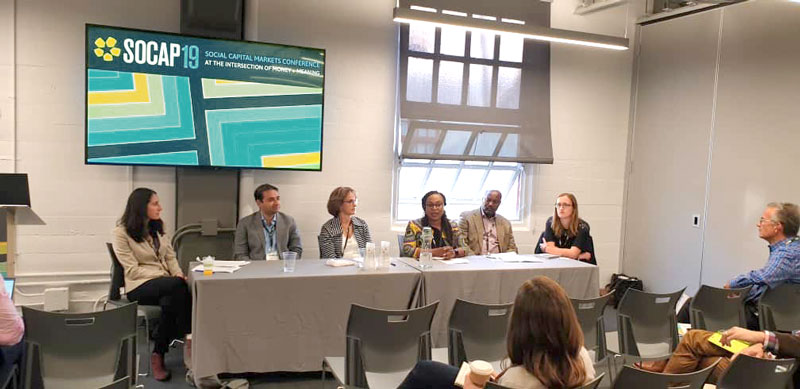
Frederic, Stephanie, and Mark participated in the SOCAP19 panel session “Bringing Agri-Business Technologies and Business Models to Scale” on October 24, 2019.
Mark Sevier: How will the connections you made at SOCAP19 impact the growth of your business?
Frederic Kawalewale: I made several connections. Originally, I thought I was just going to connect with some potential investors. I found myself also connecting with potential customers looking to purchase seeds and inoculants as well. I also connected with donors who provide technical assistance along with capital. These are the types of networks that are going to help grow my business!
Stephanie Angomwile: I also made some valuable business connections and had a few discussions with potential investors. I connected with entrepreneurs who have been on a similar investor readiness journey like me. It was great being able to compare our experiences and share ideas on what it takes to run a business in an emerging market.
Mark Sevier: Agriculture was a focal point of this year’s conference. Why is agriculture such an important part of the conversation around “money and meaning”?
Frederic Kawalewale: Agriculture is a critical part of this discussion as it drives most of the economies in sub-Saharan Africa, including Malawi. It would be great to see more entrepreneurs from Africa attend this conference and for there to be stronger interest in agricultural investment opportunities in emerging markets.
Stephanie Angomwile: Agriculture is such an important part of the Zambian economy. It is not just an economic driver, but also a social driver. Agriculture has the potential to catalyze investment in ways other industries in Zambia simply cannot. Agriculture must be part of any conversation about the growth of Zambia’s economy.
Read more about the experiences of Frederic Kawalewale and Stephanie Angomwile as agricultural entrepreneurs in an interview with Mark Sevier “The Entrepreneur Journey: Unlocking Investment Capital for Agribusiness in Emerging Markets”
